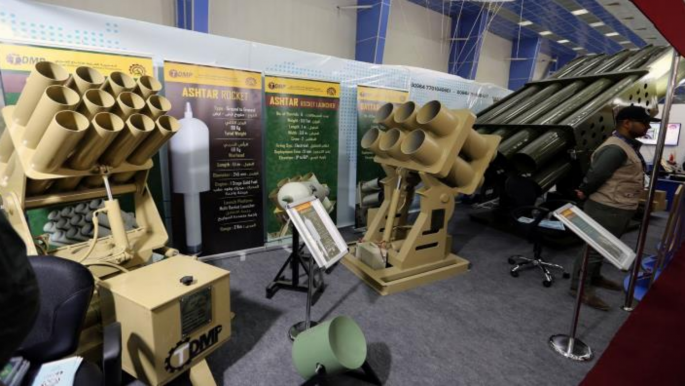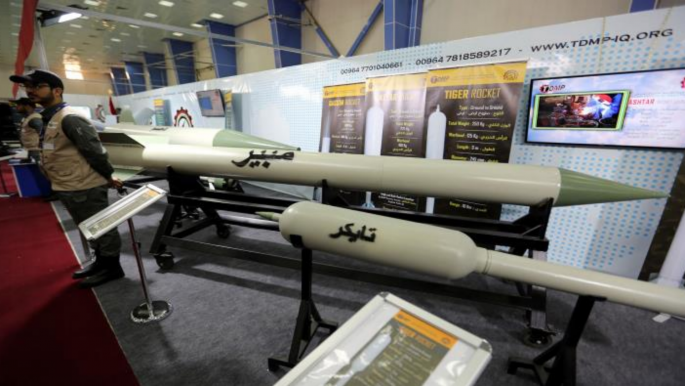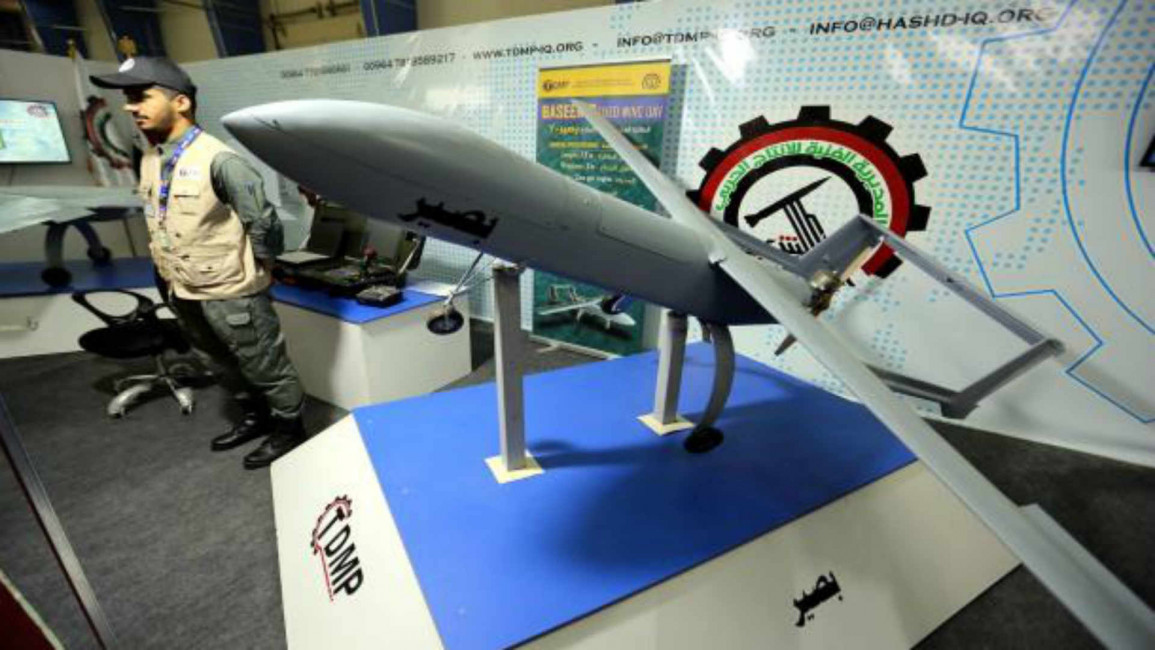Iran-backed militia shows off weapons at Baghdad arms fair
The sixth Baghdad International Security and Defence Fair got underway on Monday in the Mansour district of Baghdad with companies from 21 countries including Russia, Iran, Greece, Ukraine, China, and other Asian states taking part.
Rockets of various sizes, in addition to rocket launchers, unmanned drones, and transport vehicles were all on display at the Popular Mobilisation Forces (PMF) pavilion, apparently manufactured by its 'Technical Department'.
Some of the military hardware on display, noted The New Arab’s Ahmad al-Jamily in Baghdad, appeared to be of Russian and Iranian origin.
However, in a statement a spokesperson for the PMF claimed that all of the equipment on display were manufactured by engineers affiliated with the militia, "within Iraq".
The PMF's participation in the annual fair comes with approval from Iraq's National Security advisor Faleh al-Fayad.
Iraqi military sources who spoke to The New Arab raised concern that PMF representatives were looking to conduct military deals with foreign companies separate from the Iraqi army.
 |
| Military hardware displayed by the Popular Mobilisation Forces included multiple rocket-launchers [The New Arab] |
In a statement Abu Hussain al-Musawi, leader of the Imam Ali Brigades affiliated with the PMF said that the group’s participation in the international fair "is inseparable from its participation in the battle for Mosul, and is confirmation of victories it has achieved in the battle."
A number of Iraqi government ministers in addition to PMF members were present at the fair on Monday.
In comment to The New Arab Dr Saeed el-Karkhi, a member of the Erbil Research Centre, said the PMF's participation represented growing Iranian influence within Iraq adding that the mainly-Shia militias appeared "stronger than the Iraqi army which means more Iranian dominance in Iraq in the future," as he put it.
The PMF has played a key role in the fight back against the Islamic State after the Iraqi army's humiliating retreat from the north of the country in 2014.
However, the militias have also been linked to a number of massacres and human rights abuses during Baghdad's efforts to liberate mostly Sunni northern Iraq from IS.
In December 2016 the Iraqi parliament passed a law recognising the mainly Shia PMF as an official force with similar rights to the regular army.
However some militias within the umbrella organisation continue to face accusations that they are funded, motivated, and trained by Iran, and the Tehran-backed, Lebanese-Shia paramilitary group Hezbollah.
 |
| Popular Mobilisation Forces rockets on display [The New Arab] |
This has led the US-led coalition supporting the Iraqi army in Mosul, openly at least, to avoid providing direct support to the PMF and instead focus on supporting the Iraqi army and elite military units.
Iraq has also formally excluded the militias from the four-month-old operation to take Mosul, fearing the pro-Baghdad militants could commit reprisals against civilians in the city.
Instead, the pro-government forces are positioned to the less populated western areas of Mosul and around Tal Afar, where they hope to block an IS retreat towards Syria and cut off supplies to jihadis in the besieged city.
Iraq became polarised on ethnic and sectarian grounds following the 2003 US-led invasion, with only weak central rule.
Before the emergence of IS, Shia and Sunni militias fought a brutal civil war using bombings, shootings and kidnappings to instil fear in the rival sects.
The growing prominence of the PMF has raised concerns about the potential outbreak of competition between rival Iraqi forces, both Sunni and Shia, in addition to the Kurdish Peshmerga, once current operations against IS in Mosul end.



